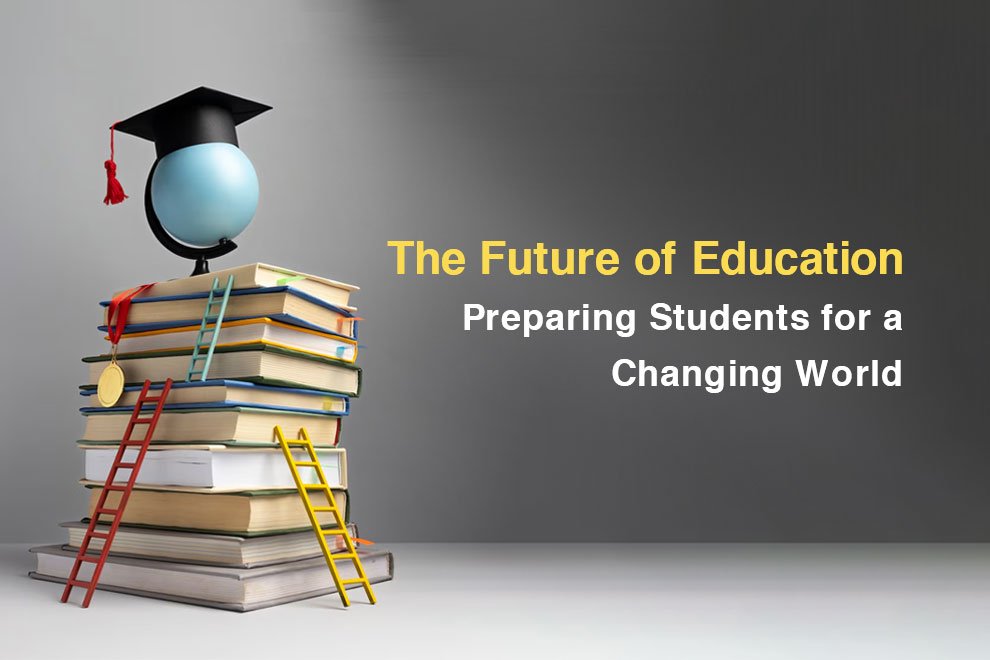In an age where technology is seamlessly interwoven with every aspect of our daily lives, it plays an indispensable role in the realm of education. Students of today navigate not only traditional academic challenges but also a digital landscape. They refine their skills to ensure they’re equipped for a rapidly evolving future. As I sat down, thinking of writing my paper, I realized that the very act was dependent on numerous smart devices, each enhancing my ability to research, draft, and present my work. Moreover, with the rise of online paper writers, students have additional resources at their fingertips to help with academic endeavors. Using a paper writer service Writepaper provides a valuable tool for students seeking assistance in crafting well-developed and thoroughly researched assignments.

Laptops and Tablets: The Core of Student Life
The heart and soul of a student’s tech arsenal is undoubtedly their laptop or tablet. These devices are the primary tools for a myriad of tasks ranging from researching online and attending virtual classes to compiling assignments and projects. The current market is flooded with options tailored to the needs of students.
Top Choices on the Market
Brands like Apple, Dell, and HP have introduced laptop models that boast long battery life, robust processors, and lightweight designs. If you want a tablet, Apple’s iPad, Microsoft’s Surface, and Samsung’s Galaxy Tab series cater to those preferring portability without compromising on performance.
Budget-Friendly Recommendations
Such devices as Acer Aspire, Lenovo IdeaPad, and the basic model of the iPad offer substantial functionality at a fraction of the cost of their premium counterparts. Investing in a good keyboard attachment can also transform tablets into effective writing tools.
Smartphones Are Not Just For Communication
Once just a device to call or text, smartphones have evolved into compact powerhouses essential for students. Their utility stretches far beyond communication.
1. Studying: Apps like Duolingo for language learning, Khan Academy for various subjects, and Evernote for note-taking make academic tasks easier and more interactive.
2. Staying Organized: Built-in calendar apps, to-do list apps like Todoist, and reminder functionalities ensure no deadline is ever missed.
3. Avoiding Distractions: While smartphones are invaluable, they can also be sources of distraction. Using apps like “Forest” or “Focus@Will” can help students maintain concentration during study sessions.
E-Readers: The New Age Library
For voracious readers and those students keen on reducing their physical textbook load, e-readers have become a godsend. E-readers can store thousands of books in one lightweight device. Features like highlighting, dictionary lookup, and note-taking elevate the reading experience adding an interactive element for those who struggle to stay focused.
E-books often come at a reduced cost compared to hardcovers. They are easier to find and can’t be out of stock. Moreover, several open-source platforms offer free access to academic textbooks, further easing the financial burden on students.
If you’re looking for an e-reader, a good one should have a clear, high-resolution display, an adjustable backlight, and a battery that lasts at least a week. Brands like Amazon’s Kindle and Barnes & Noble’s Nook are favorites among students.
Smart Wearables
The wearable tech industry has taken the world by storm, offering an array of devices that marry fashion with functionality. For students, they’re more than just trendy accessories.
Smartwatches, beyond telling time, can help students manage their schedules with calendar integrations, set reminders for classes or study sessions, and even allow quick previews of emails or messages. Some also offer apps or integrations tailored for students, such as flashcard review tools or voice recorders for lecture capture.
College can be stressful. Fitness trackers like Fitbit or the Xiaomi Mi Band track physical activity, sleep patterns, and even stress levels, reminding students to take breaks or engage in some physical exercise. Many wearables now come with preinstalled meditation or breathing exercises, helping students find moments of calm amidst academic chaos.
Right now, Apple Watch stands out as the most popular for its plethora of apps and integrations in the Apple ecosystem. However, there are alternatives, each better for varying reasons. Samsung Galaxy Watch is preferred by Android users. And Garmin is used by professional hikers, sports people, and those who love a more sophisticated look. All of them also have a longer battery life than the Apple Watch, which can prove vital on longer walks or vacations.
Portable Hard Drives and Cloud Storage
The horror of losing a semester-long project or a crucial paper a night before the deadline is a scenario every student dreads. Reliable storage solutions are critical:
Physical Storage
Portable Hard Drives like Western Digital’s My Passport or Seagate’s Backup Plus offer substantial storage capacities and are handy for students who prefer to have physical copies of their data. If you don’t need the heaps of storage an ordinary hard drive offers, a simple flash will do wonders. They are compact, easily attachable to keychains, and offer quick data transfer.
Cloud Storage
Platforms like Google Drive, Dropbox, and Microsoft OneDrive allow students to access their files from any device, collaborate in real time, and ensure their work is always backed up. With cloud storage, concerns arise regarding data privacy. It’s essential to ensure that passwords are robust, two-factor authentication is enabled, and sensitive files are encrypted.
Noise-Canceling Headphones For Focused Studying
In bustling campuses or noisy dorm rooms, finding a silent corner can be a challenge. Noise-canceling headphones are the answer. By drowning out ambient noises, students can create a distraction-free zone, which is crucial during intense study periods or online classes. Continuous exposure to noise can also be mentally exhausting. These headphones provide relief, allowing for relaxation or even meditation sessions with music.
Top Models on the Market:
- Sony WH-1000XM4 is a renowned model for its superior noise-canceling capabilities and sound quality;
- Bose QuietComfort 35 are popular for their comfort and effective noise cancellation.
- Sennheiser PXC 550 offer a blend of sound quality, noise cancellation, and a more affordable price point.
Beyond noise-canceling capabilities, factors like comfort, battery life, and audio quality should guide a student’s choice. Trying them out in-store, if possible, can also help in making a well-informed decision.
Smart Home Devices
As students strive for more comfortable and efficient study spaces, integrating smart home devices can be a game-changer.
Smart Bulbs: Devices like Philips Hue or LIFX allow students to adjust lighting based on the time of day or task, creating optimal study environments.
Smart Speakers and Digital Assistants: Amazon Echo or Google Home can set study timers, play focus-enhancing music, or even answer quick questions without having to dive into a web search.
Digital assistants can start a morning with a summary of the day’s tasks or even give reminders about breaks. Also, instead of typing out a thought, students can simply say it out loud and have it transcribed.
Takeaway
In a world where the lines between technology and academia blur a bit more each day, students find themselves in the thick of it, often seeking the best thesis writing services, tools, or gadgets to make their academic journey smoother. These tech choices not only boost productivity but also redefine the very essence of learning, adapting, and evolving in a digital age.
Harnessing the power of these devices and services wisely allows students of today to achieve more than just academic excellence. It prepares them for a future that values adaptability, digital prowess, and the continuous pursuit of knowledge in an ever-evolving technological landscape.













